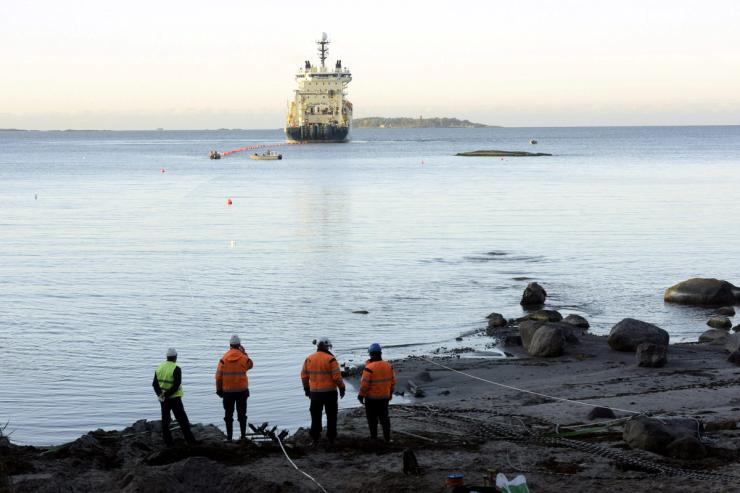The News
Germany’s defense minister told reporters in Brussels that the severing of two communication cables in the Baltic Sea was likely sabotage. One of the cables connected Finland and Germany; it is the latest incident in a series of incidents involving undersea cables in the body of water.
“No one believes that these cables were cut accidentally,” Boris Pistorius said, adding that it was not clear “specifically who it came from.”
The Finnish firm responsible for the cable believes that it was likely severed “by an outside force.”
Finnish officials have launched an investigation into the incident, while Sweden is looking into the severing of a cable connecting to Lithuania.
In September, US officials warned that Russia had increased its military activity around undersea cables, including in the Baltic Sea. Meanwhile, NATO has ramped up its protection over the maritime infrastructure that transports much of Europe’s energy supply and undergirds global internet traffic.
SIGNALS
Russia carries out ‘unprecedented’ campaign in Europe
European Union and NATO countries are facing an “unprecedented” level of so-called “hybrid attacks” — the official term for acts that don’t meet the bar of warfare — from Russia, five EU states and the UK said in a joint statement Tuesday. Across the continent, Russian operatives have been suspected of assassination plots, targeting cargo planes, and arson attacks. While European countries have increased infrastructure security, some officials caution that such measures are not enough to deter attackers. “If we do not find a way to stop the Russians, to send them the message that this is a red line that you cannot cross, then they will continue,” Lithuania’s foreign minister said in October. “We are simply being too polite,” Denmark’s Prime Minister said.
UK moves to expand its undersea energy infrastructure
The UK plans to build five subsea electricity cables to Ireland and continental Europe, a move that could smooth-out renewables’ naturally intermittent supply. Britain has a strong wind-power sector, and on blustery days can export large amounts of electricity, but on still days, it relies on imports. The UK and Norway have taken steps to secure critical undersea energy infrastructure in the North Sea, monitoring for hostile submarines and potential mine attacks. Despite the focus on the risk of sabotage, anchors and fishing equipment remain the greatest danger to undersea cables, and are responsible for most of the estimated 100-150 undersea cables that are severed each year.



